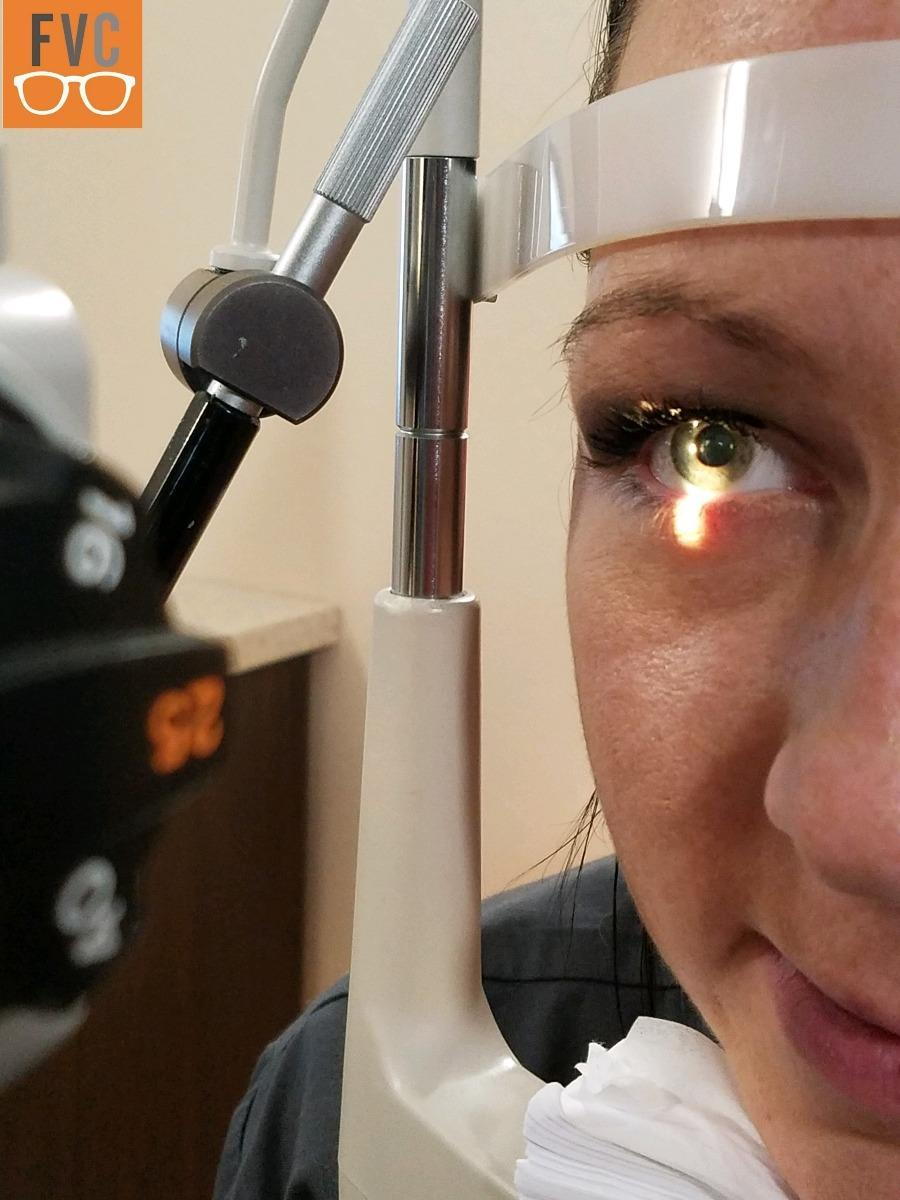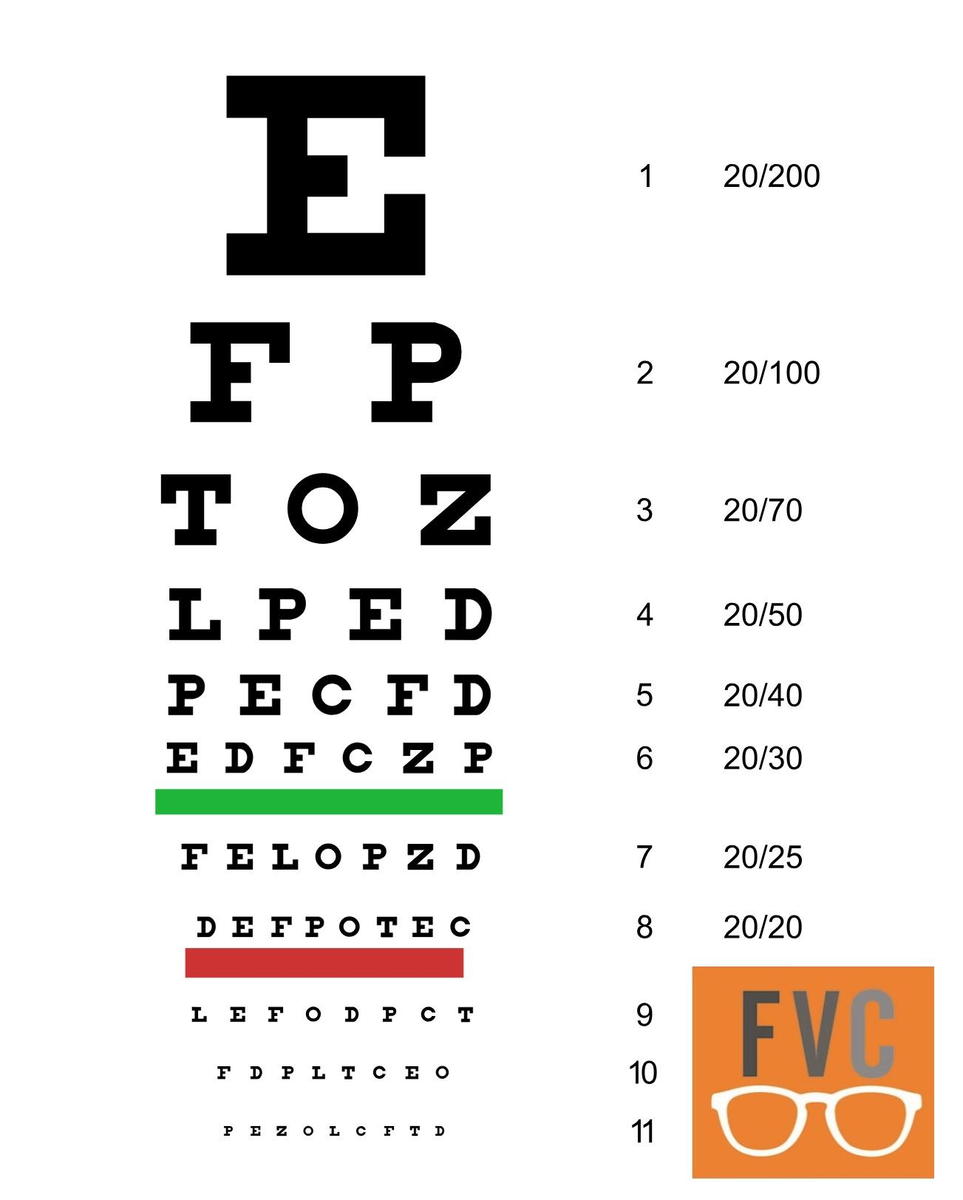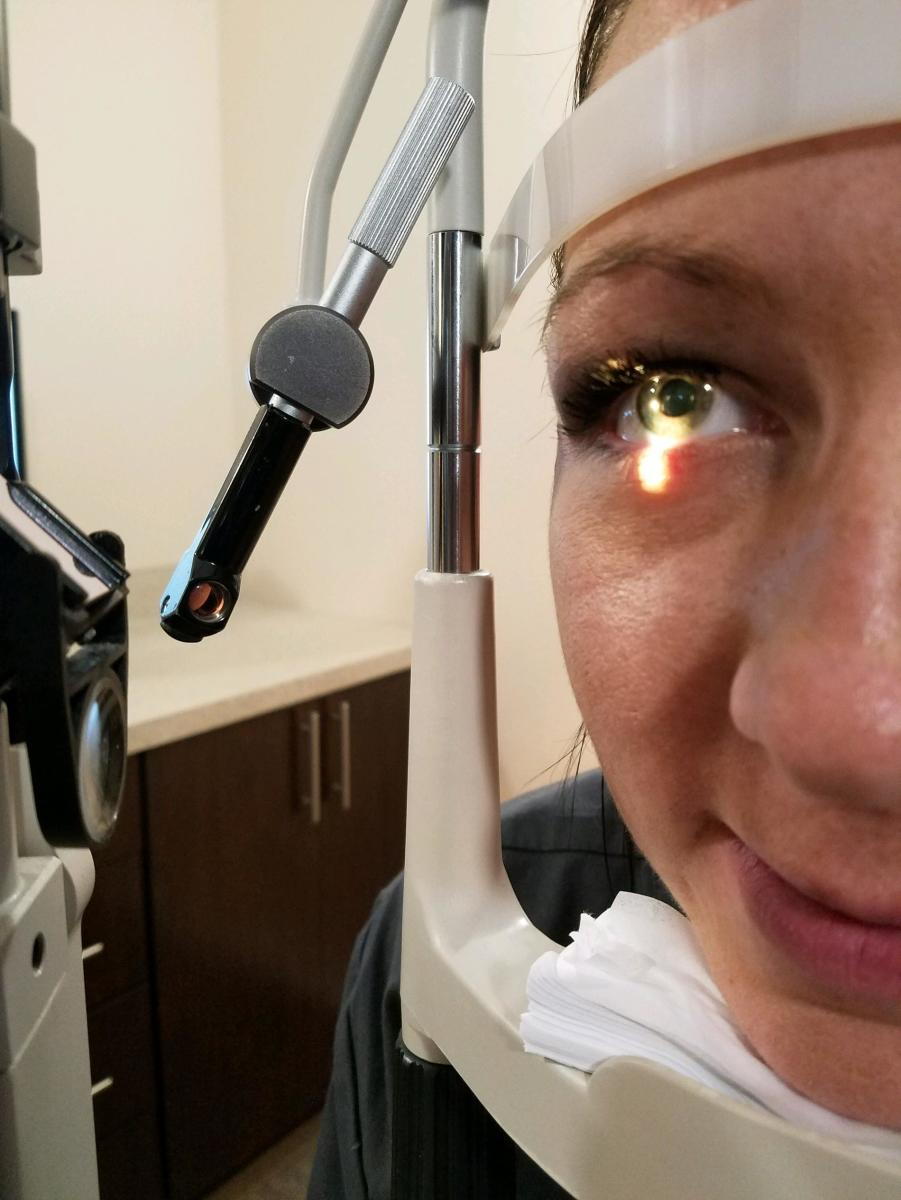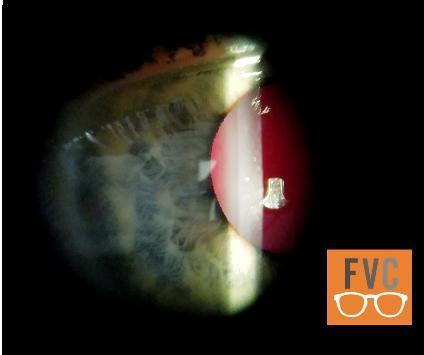
- posted: Jul. 24, 2018
So you passed your vision screening at work or school...do you really need to come in annually for an eye examination? The short answer is: YES! I could talk all day about the reasons you should get your eyes examined by an eye doctor annually but if you're like me, you want quick and to the point (so you can get back to Facebook) so here it goes:

1. Vision screenings are not eye exams.
Me: When was your last eye exam?
Patient: Oh I haven't had one since I was in school but it was all normal then and I saw 20/20 so didn't need glasses.
Me: How did you do in school?
Patient: Not so well. I hated reading. I got a lot of headaches and I lost my place a lot so I didn't really study.
*Spoiler alert: this patient needed glasses for farsightedness (or hyperopia)!
Me: When was your last eye exam?
Patient: I had one last week when I went for my physical with my doctor! I could read all the way to the bottom!
Me: Well what brings you in today then?
Patient: I can't see at night. Headlights just blind me. I can't read road signs.
*Spoiler alert: this patient had cataracts!
Me: When was your last eye exam?
Patient: At least ten years ago but I get a screening at work every year and I always see 20/20 but lately I have noticed I have trouble with peripheral vision.
*Spoiler alert: This person had glaucoma.
None of these examples are hypothetical unfortunately. I get this one A LOT! Vision screenings are quick, cost efficient, and effective at detecting subnormal visual acuity but miss the bar on most conditions. Most vision screenings consist of a visual acuity test where the participant is asked to “read the lowest line on the chart” and the vision is recorded by a volunteer who often has no background in eye care. Many conditions such as glaucoma, strabismus, retinitis pigmentosa, diabetic retinopathy, etc can have normal vision while the patient is still in danger of losing their sight and would go undetected in a screening. Additionally, far-sighted individuals can often pass vision screenings with normal visual acuity but suffer from many eye related symptoms such as headache or blur when reading. An eye examination measures visual acuity but also evaluates ocular health and how it relates to systemic health and visual function. If no one has assessed your external and INTERNAL ocular health, it was not an eye examination!
2. Vision is more than “seeing.”
While that 20/20 goal is important to both you and your doctor, there are so many other factors that go into “seeing.” The technical stuff of course: visual acuity, contrast sensitivity, color vision, depth perception, accommodation (or focusing), but also the non-technical stuff. Do your eyes work together? Are you comfortable when reading a book? A computer screen? Driving? Do your eyes go in and out of focus but you still see “20/20.” Your doctor will discuss and assess all of these things to work toward giving you your best vision through glasses, contacts, or surgery if necessary. Screenings assess visual acuity but don't “fail” you until you're 20/40 or worse. News flash: 20/40 is the legal limit for driving without correction in Missouri. That's not that great. We can do better.
3. Success in School and Work
We use our eyes to learn and explore our world. Statistically it has been quoted that about 80% of what a child is presented in school is presented visually. A child can't excel in school without the proper tools. They can't learn to write unless you give them a pencil and they can't learn to read, navigate, or work their muscles (even chew!) without vision and certainly not well unless it is clear and comfortable too! Before you say “but my child sees 20/20”--read number 2 again. Your child should have an eye examination well before they start kindergarten. I recommend between 6 months and 12 months for their first time. Kids are increasingly presented with digital devices which cause a host of new problems for their eyes. Additionally, children don't know what “normal” vision should look and feel like. They only know what they've always had and so many children will never complain of eye problems. They may not like to read, have headaches, be hyperactive, not pay attention, but never say “it is blurry.” According to the website, www.allaboutvision.com as many as 24% of adolescents with correctable vision problems don't have their vision fully corrected and many more are undiagnosed. Unfortunately, this is true for many adults too who get by just “passing the screening.”

4. The Health of Your Eyes!
Many eye conditions develop slowly overtime with only minor changes (if any) in your vision as they progress which means that you may not notice any change at all until it is too late. Disorders like glaucoma or macular degeneration can steal your vision slowly until you have lost your complete central or peripheral vision and once it is gone, it is gone. There is no treatment for blindness from many of these disorders, only prevention of blindness. That is why it is important to have a full comprehensive eye examination every year. Early detection means early treatment and protection of your vision. When you have a full ocular health examination your doctor will evaluate you for a host of ocular problems including: glaucoma, macular degeneration, diabetic retinopathy, cataracts, hypertensive retinopathy, retinal detachments, retinal holes, retinal tears, optic nerve disorders, dry eye, eye allergies, etc. (I really could keep going but you get the picture).

5. The Health of Your Body!
Everyone has heard that the “eyes are the windows to your soul” but did you know that literally your eyes “are the windows to your blood vessels and nerves?” During your eye examination, your eye doctor can assess your veins and arteries directly (without cutting into your body!) as they course through your retina. They also can directly view your optic nerve. This gives your eye doctor the ability to detect conditions like diabetes or diabetic damage, high blood pressure, multiple sclerosis, cancer (even colon cancer with some eye presentations), autoimmune diseases such as Lupus or Rheumatoid Arthritis, anemia, thyroid problems, etc...I'm rambling again. If we see anything, we're going to be the first to alert your primary care physician so that you can get the proper care that you need and deserve. We love being able to get you safely in the hands of a competent physician who can manage your complete systemic health because your condition was caught early through your eye exam. Your eye examination can even help your primary physician with monitoring your medications and effectiveness of treatment.
Dr. Kwan
Questions? Stop by our office or make an appointment with one of our doctors for your annual comprehensive eye examination.
Locations
Find us on the map
Farmington Vision Care
110 East Harrison
Farmington, MO, US
Contact Us
We look forward to hearing from you
Hours of Operation
Our Regular Schedule
Farmington Vision Care
8:00 am - 6:00 pm
8:00 am - 5:00 pm
8:00 am - 5:00 pm
8:00 am - 5:00 pm
Closed
Closed
Closed

